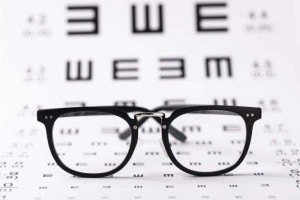Your eyes need a critical balance of vitamins to keep your vision in tip-top shape, especially as you age.If you don’t get enough vitamins A and B12, you may be more likely to develop eye diseases that can lead to vision loss and even blindness.
In many cases, eating a balanced diet with plenty of fruits and vegetables is enough to keep your eyes healthy.But if you suffer from certain serious eye conditions, you may also need vitamin supplements.
“We’ve all heard that carrots are good for the eyes. That’s partly because they have high levels of vitamin A,” says Sunir J. Garg, MD, an ophthalmologist and professor of ophthalmology at Thomas Jefferson University.

Vitamin A is important for both the front of the eye (called the cornea) and the back of the eye (called the retina), Garg said.When vitamin A is deficient in your diet, it can damage the cornea and retina, which can impair your vision.
This is because vitamin A helps produce the pigment that allows your retina to work properly.When you don’t have enough vitamin A, you may not be able to see clearly in low light.
“Fortunately, this type of vision loss can often improve when vitamin A levels return to normal,” Garg said.This means that you probably don’t need a large supplement of vitamin A, as long as you get the recommended daily intake, which is between 0.7 mg and 0.9 mg.
B vitamins — such as B6, B12, and folic acid — can help improve eye health by preventing age-related macular degeneration (AMD), which over time causes retinal degeneration and blurred vision.This is because B vitamins reduce blood levels of homocysteine, an acid that affects retinal arteries and is an independent risk factor for AMD.
A large 2009 study found that women deficient in vitamin B12 were twice as likely to develop AMD as women with normal vitamin B12 levels.Additionally, women who took 50mg B6, 1mg B12 and 2.5mg folic acid supplements for two years were 35% to 40% less likely to develop AMD.

B vitamin deficiencies can also cause problems with the optic nerve, the tissue responsible for transmitting images from the eye to the brain.In severe deficiency, it can lead to decreased vision or blind spots.
Cataracts are cloudy areas that appear on the lens of the eye and are one of the most common causes of poor vision with age.
“Vitamin C and E are powerful antioxidants. Therefore, they are associated with a lower risk of cataracts,” Garg said.
Antioxidants help fight free radicals, which can cause changes in the lens of the eye, resulting in a cloudy appearance that damages your vision.
Several studies have shown that a daily intake of at least 140 mg of vitamin C (for reference, the recommended value is 60 to 90 mg per day) can help prevent cataracts.But be careful not to overdo it, as a large 2013 study found that consuming more than 500 mg of vitamin C may actually increase the risk of cataracts in certain groups of people, such as men who smoke or are obese.
Research has also shown that vitamin C may also help slow the progression of AMD by strengthening the blood vessels in the eye that support the retina.A large 2016 study found that people with higher intakes of vitamin C were significantly less likely to develop AMD.
Vitamin E also acts as an antioxidant in your body, and studies show it can protect you from vision loss in old age.

More research is needed, but some studies suggest that long-term consumption of a diet rich in vitamin E or taking vitamin E supplements may help prevent cataracts and AMD.
A large 2005 study found that people who took vitamin E supplements were less likely to develop cloudy lenses within 5 years.However, a large 2001 study found that taking a 400 IU daily vitamin supplement had no effect on cloudy eyes.
Research has also shown that the antioxidants in vitamin E can help slow the progression of cataracts, and experts recommend taking at least 100IU for benefits.
Getting enough of these important vitamins in your diet can greatly enhance and protect your vision.In most cases, you may not need to take additional supplements unless you are deficient in vitamins.
“For most people, we get a lot of these vitamins from a balanced diet,” says Garg.
However, if you have a serious medical condition such as AMD, your doctor may recommend supplements.”There are widely available high-dose vitamins for macular degeneration,” Garg said.
However, because taking high-dose supplements can lead to health problems in some cases, “people should not take these high-dose vitamins unless discussed with their ophthalmologist,” Garg said.
Post time: Jun-10-2022




